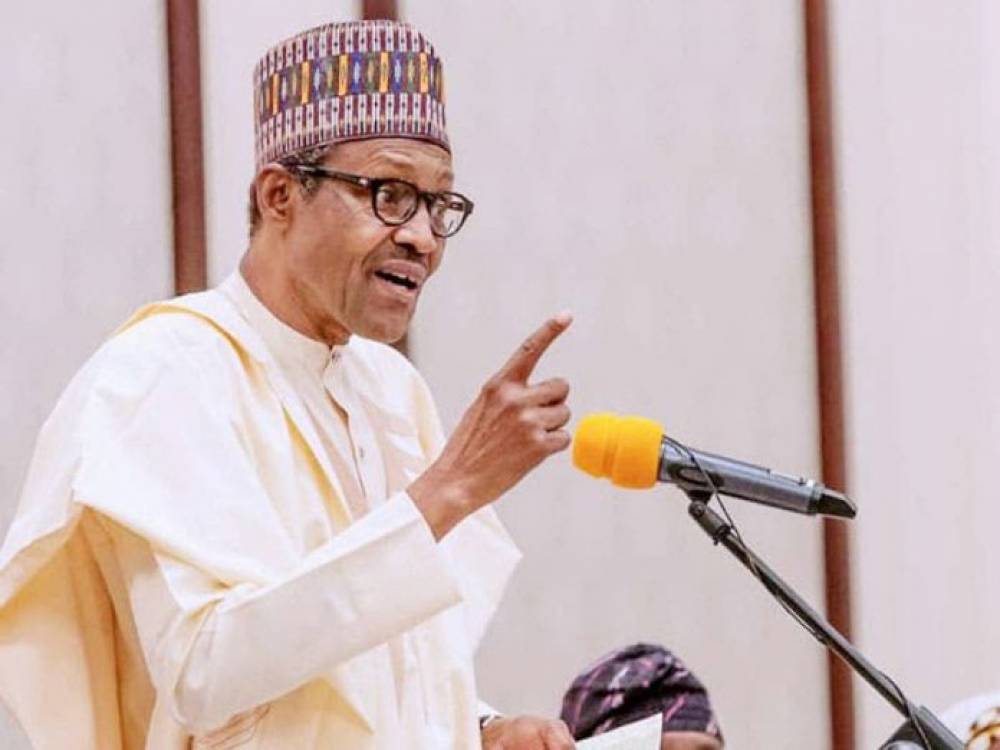
Twitter Ban Rewinds Nigeria To Pre-internet Darkness And Reign Of Fear
Twitter ban rewinds Nigeria to pre-internet darkness and reign of fear
A Nigerian government that is responsible for the epicenter of global poverty, skyrocketing unemployment, rampant extrajudicial killings, and an unrelenting insurgency has determined that the country's greatest problem is its citizens' use of Twitter and other internet-enabled media.
That government, led by a former military dictator, has reverted Nigeria to the dark days of press repression and a reign of terror, which the world believed had passed the country by.
In 1984, Muhammadu Buhari's military government issued Decree 4, which ordered the closure of newspapers, radio stations, and television stations. It was a retaliatory measure in response to public criticism of government officials. It was retroactively applied to journalists and citizens and carries a prison sentence.
A generation later, during the same retired major general's ostensibly democratic reawakening, the largest independent platform for citizens to bond over grievances, where they pool medical, legal, and educational assistance, has come under his hammer.
An infamous ban
MTN, Airtel, and 9Mobile have all blocked access to the social media app and website. While some users claim they still have access through certain internet service providers, VPNs have become the primary way for the majority of people to stay connected to Twitter.
The Association of Licensed Telecommunications Operators of Nigeria (ALTON), a trade association for Nigeria's telcos, confirmed that the Twitter ban has been implemented:
“We wish to confirm that our members have received formal instructions to suspend access to Twitter from the Nigerian Communications Commission (NCC), the industry regulator.”
“In accordance with the national interest provision of the Nigerian Communications Act, 2003, and the terms of the industry's license, our members have acted in accordance with the Nigerian Communications Commission's directives...”
The remainder of ALTON's statement tries to strike a balance: "...we endorse the United Nations' position that people's offline rights must also be protected online." This includes respecting and safeguarding all people's rights to communicate and share information freely and responsibly...”
What difference does it make? More than endorsements, actions speak louder than words.
However, the entire blame for Nigeria's Twitter darkness falls squarely on the shoulders of the top.
Buhari was suspended from Twitter after his tweet violated common sense rules against threatening violence. In an ostensibly constitutional response, he has invoked his ostensibly constitutional command of violence.
His ruse of defending Nigeria against "activities capable of undermining Nigeria's corporate existence" rings hollow to anyone who has followed his government's feeble attempts to keep Nigerians safe for six years.
However, he did so after Nigerians decided in two elections that he should. And if he can accomplish this, what else is possible?
Prepare for the worst
A second look at yesterday's announcement should instill a sense of foreboding.
“The Minister also stated that the Federal Government has directed the National Broadcasting Commission (NBC) to immediately begin the licensing process for all over-the-top (OTT) and social media operations in Nigeria.”
In effect, suspending Twitter is merely the beginning, a sample of an extremely unpleasant menu that may be served soon.
Over-the-top platforms include instant messaging apps such as WhatsApp and Telegram, as well as streaming services such as Netflix, Shomax, and others. Essentially, any media or communication service that makes use of data from internet service providers.
Due to their internet-based nature, OTT platforms do not require cable or satellite infrastructure to be accessible to end users. The Nigerian Broadcasting Commission regulates television and radio because they rely on national infrastructure and therefore require licenses from regulators.
Nigeria now wishes to license OTTs indirectly via the ISPs that facilitate them.
It is unclear how this will be accomplished. WhatsApp and Telegram are both encrypted end-to-end. Will the government require access to users' chats as a condition of licensing?
Do not assert that it is beyond the realm of possibility. By suspending Twitter, Nigeria has entered the realm of internet control championed by China, Iran, and India, a fellow democratic country. All is fair in love and war in the face of government criticism under this protocol.
Will Nigeria tighten its censorship of Netflix by requiring more local content (as South Africa has proposed) or by questioning Showmax about contestants' behavior when Big Brother Nigeria returns in a few months?
Nothing, once again, is off the table. If there is one thing that this Twitter ban excludes, it is the alternative means of livelihood that many Nigerians rely on to survive.
Down with the informal economy
“For digital marketers, social media has been instrumental in generating revenue,” Wale Adetona, an influencer with 176,000 Twitter followers, tells TechCabal.
According to him, the Twitter ban will have a "significant effect on brand communication."
By and large, we can count on brands to be fine. They will devise alternate methods of reaching out to audiences. However, thousands of informal economy workers – food vendors, event planners, and others – who rely on customers finding them on their schedule will bear the brunt of the impact. They can migrate to Instagram, but viral marketing content generation is not as simple as it is on Twitter.
If Abuja considered these individuals when deciding to ban Twitter, the informal sector of the digital economy was deemed necessary collateral damage. They have been deemed unnecessary. Perhaps they will be advised to join TraderMoni or N-power as a last resort.
For the time being, everyone has been marched through the barricades uniformly. As one oppressed people bound together by a shared history of trauma in Africa's Giant. Under Buhari's democratically reformed gun, one nation.
Courses and Certification
Social Media Marketing Course and Certificate
Twitter Marketing Course and Certificate
Internet Technologies Course and Certificate
Digital Communication Course and Certificate

